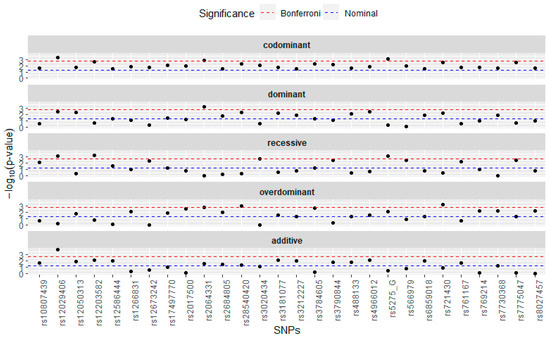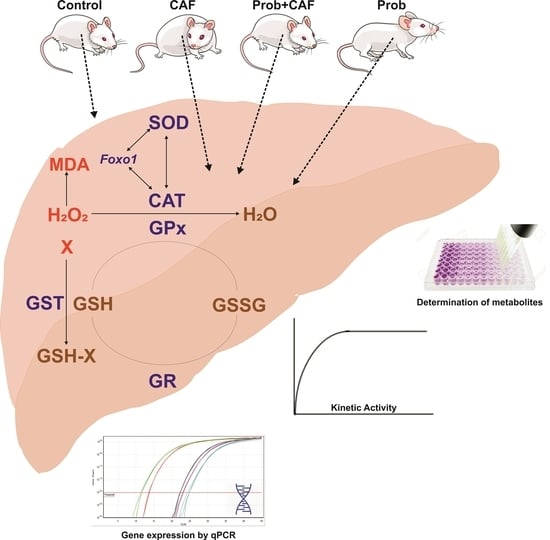Diet and Multi-Omics
Share This Topical Collection
Editors
 Dr. Mohsen Mazidi
Dr. Mohsen Mazidi
 Dr. Mohsen Mazidi
Dr. Mohsen Mazidi
E-Mail
Website
Collection Editor
1. Clinical Trial Service Unit and Epidemiological Studies Unit (CTSU), Nuffield Department of Population Health, University of Oxford, Oxford OX3 7LF, UK
2. Department of Twin Research & Genetic Epidemiology, South Wing St Thomas’, King’s College London, London SE1 7EH, UK
Interests: personalized nutrition; metabolomics; microbiome; nutritional epidemiology; mendelian randomization; non-communicable diseases
 Dr. Richard Webb
Dr. Richard Webb
 Dr. Richard Webb
Dr. Richard Webb
E-Mail
Website
Co-Collection Editor
School of Health Sciences, Liverpool Hope University, Liverpool L16 9JD, UK
Interests: cardiometabolic; lipoproteins; lipids; nutrition; atherosclerosis
Topical Collection Information
Dear Colleagues,
With the recent shift in focus from food quantity to quality, consumers’ concerns and choices regarding healthy food have become a matter of prime importance. This has given rise to the concepts of ’personalized’ and ‘precision’ nutrition. Additionally, our understanding of the complex interplay between diet, health and disease as determined using so-called ‘omics’ technologies is growing. This is particularly timely as individuals now often look towards these personalized and precision nutrition approaches for guidance on healthier food choices. Moreover, recent advancements in omics tools and techniques have greatly extended the scope of their application within the nutrition sciences. As a result, a better understanding of the underlying interactions between diet and human physiology can be gained, whilst addressing the key challenges critical for the successful implementation of this science.
Dr. Mohsen Mazidi
Dr. Richard Webb
Collection Editors
Manuscript Submission Information
Manuscripts should be submitted online at www.mdpi.com by registering and logging in to this website. Once you are registered, click here to go to the submission form. Manuscripts can be submitted until the deadline. All submissions that pass pre-check are peer-reviewed. Accepted papers will be published continuously in the journal (as soon as accepted) and will be listed together on the collection website. Research articles, review articles as well as short communications are invited. For planned papers, a title and short abstract (about 100 words) can be sent to the Editorial Office for announcement on this website.
Submitted manuscripts should not have been published previously, nor be under consideration for publication elsewhere (except conference proceedings papers). All manuscripts are thoroughly refereed through a single-blind peer-review process. A guide for authors and other relevant information for submission of manuscripts is available on the Instructions for Authors page. Nutrients is an international peer-reviewed open access semimonthly journal published by MDPI.
Please visit the Instructions for Authors page before submitting a manuscript.
The Article Processing Charge (APC) for publication in this open access journal is 2900 CHF (Swiss Francs).
Submitted papers should be well formatted and use good English. Authors may use MDPI's
English editing service prior to publication or during author revisions.
Keywords
- diet
- nutrients
- microbiome
- metabolites
- proteomics
- genomics
- omics
Published Papers (3 papers)
Open AccessArticle
Polycyclic Aromatic Hydrocarbons and Pancreatic Cancer: An Analysis of the Blood Biomarker, r-1,t-2,3,c-4-Tetrahydroxy-1,2,3,4-tetrahydrophenanthrene and Selected Metabolism Gene SNPs
by
Sierra Nguyen, Heather Carlson, Andrea Yoder, William R. Bamlet, Ann L. Oberg, Gloria M. Petersen, Steven G. Carmella, Stephen S. Hecht and Rick J. Jansen
Viewed by 839
Abstract
Exposure to polycyclic aromatic hydrocarbons (PAHs), byproducts of incomplete combustion, and their effects on the development of cancer are still being evaluated. Recent studies have analyzed the relationship between PAHs and tobacco or dietary intake in the form of processed foods and smoked/well-done
[...] Read more.
Exposure to polycyclic aromatic hydrocarbons (PAHs), byproducts of incomplete combustion, and their effects on the development of cancer are still being evaluated. Recent studies have analyzed the relationship between PAHs and tobacco or dietary intake in the form of processed foods and smoked/well-done meats. This study aims to assess the association of a blood biomarker and metabolite of PAHs,
r-1,
t-2,3,
c-4-tetrahydroxy-1,2,3,4-tetrahydrophenanthrene (PheT), dietary intake, selected metabolism SNPs, and pancreatic cancer. Demographics, food-frequency data, SNPs, treatment history, and levels of PheT in plasma were determined from 400 participants (202 cases and 198 controls) and evaluated based on pancreatic adenocarcinoma diagnosis. Demographic and dietary variables were selected based on previously published literature indicating association with pancreatic cancer. A multiple regression model combined the significant demographic and food items with SNPs. Final multivariate logistic regression significant factors (
p-value < 0.05) associated with pancreatic cancer included: Type 2 Diabetes [OR = 6.26 (95% CI = 2.83, 14.46)], PheT [1.03 (1.02, 1.05)], very well-done red meat [0.90 (0.83, 0.96)], fruit/vegetable servings [1.35 (1.06, 1.73)], recessive (rs12203582) [4.11 (1.77, 9.91)], recessive (rs56679) [0.2 (0.06, 0.85)], overdominant (rs3784605) [3.14 (1.69, 6.01)], and overdominant (rs721430) [0.39 (0.19, 0.76)]. Of note, by design, the level of smoking did not differ between our cases and controls. This study does not provide strong evidence that PheT is a biomarker of pancreatic cancer susceptibility independent of dietary intake and select metabolism SNPs among a nonsmoking population.
Full article
►▼
Show Figures
Open AccessArticle
The Hepatic Antioxidant System Damage Induced with the Cafeteria (CAF) Diet Is Largely Counteracted Using SCD Probiotics during Development of Male Wistar Rats
by
Nurdan Aba, Enver Fehim Koçpınar and Taha Ceylani
Cited by 1 | Viewed by 982
Abstract
The cafeteria (CAF) diet, reflective of predominant Western dietary behaviors, is implicated in hastening weight gain, subsequently resulting in health complications such as obesity, diabetes, and cancer. To this end, it is vital to notice the deleterious consequences of the CAF regimen prior
[...] Read more.
The cafeteria (CAF) diet, reflective of predominant Western dietary behaviors, is implicated in hastening weight gain, subsequently resulting in health complications such as obesity, diabetes, and cancer. To this end, it is vital to notice the deleterious consequences of the CAF regimen prior to the onset of complications, which is fundamental for early intervention in the context of numerous diseases. Probiotic-derived postbiotic metabolites have gained attention for their antioxidative properties, offering a potential countermeasure against oxidative stress. This research sought to discern the protective efficacy of SCD Probiotics against liver glutathione system damage arising from the CAF diet during developmental phases. Male Wistar rats, from weaning on day 21 to day 56, were categorized into four groups: a control on a conventional diet; a group on a standard diet enriched with SCD Probiotics; a mixed-diet group comprising both CAF and standard feed; and a combination diet group supplemented with SCD Probiotics. Through the application of real-time PCR, enzyme activity assessments, and quantitative metabolite analyses, our findings highlight the CAF diet’s adverse influence on the liver’s antioxidant defenses via shifts in gene expression. Yet, the inclusion of SCD Probiotics mostly ameliorated these harmful effects. Remarkably, the positive regulatory influence of SCD Probiotics on the liver’s antioxidant system was consistently observed, independent of the CAF diet’s presence.
Full article
►▼
Show Figures
Open AccessArticle
Investigating the Role of Ferroptosis-Related Genes in Ovarian Aging and the Potential for Nutritional Intervention
by
Pei-Hsuan Lin, Wan-Ping Su, Chia-Jung Li, Li-Te Lin, Jim Jinn-Chyuan Sheu, Zhi-Hong Wen, Jiin-Tsuey Cheng and Kuan-Hao Tsui
Cited by 5 | Viewed by 2110
Abstract
With advancing age, women experience irreversible deterioration in the quality of their oocytes, resulting in reduced fertility. To gain a deeper understanding of the influence of ferroptosis-related genes on ovarian aging, we employed a comprehensive approach encompassing spatial transcriptomics, single-cell RNA sequencing, human
[...] Read more.
With advancing age, women experience irreversible deterioration in the quality of their oocytes, resulting in reduced fertility. To gain a deeper understanding of the influence of ferroptosis-related genes on ovarian aging, we employed a comprehensive approach encompassing spatial transcriptomics, single-cell RNA sequencing, human ovarian pathology, and clinical biopsy. This investigation revealed the intricate interactions between ferroptosis and cellular energy metabolism in aging germ cells, shedding light on the underlying mechanisms. Our study involved 75 patients with ovarian senescence insufficiency, and we utilized multi-histological predictions of ferroptosis-related genes. Following a two-month supplementation period with DHEA, Ubiquinol CoQ10, and Cleo-20 T3, we examined the changes in hub genes. Our results showed that TFRC, NCOA4, and SLC3A2 were significantly reduced and GPX4 was increased in the supplement group, confirming our prediction based on multi-omic analysis. Our hypothesis is that supplementation would enhance the mitochondrial tricarboxylic acid cycle (TCA) or electron transport chain (ETC), resulting in increased levels of the antioxidant enzyme GPX4, reduced lipid peroxide accumulation, and reduced ferroptosis. Overall, our results suggest that supplementation interventions have a notable positive impact on in vitro fertilization (IVF) outcomes in aging cells by improving metal ion and energy metabolism, thereby enhancing oocyte quality in older women.
Full article
►▼
Show Figures
Planned Papers
The below list represents only planned manuscripts. Some of these
manuscripts have not been received by the Editorial Office yet. Papers
submitted to MDPI journals are subject to peer-review.
Authors: Xiaoqun Duan, Xingshu Wei, Tianchi Wu, Meng Liu, Xiaofei Xu, Xiaotian Xu, Yuhui Wang
Abstract: This study aimed to investigate the effects of a fermented extract of passion fruit peel on constipation and hemorrhoids and its mechanism. The results showed that the fermented extract of the fruit peel could significantly shorten the time to the first black stool in constipated mice, increase the number of defecation particles, fecal water content and propulsive intestinal rate, and restore substantially the secretion levels of motilin, gastrin, endothelin, somatostatin, Substance P and vasoactive intestinal peptide in the serum of mice. At the same time, the fermented extract of passion fruit peel significantly improved perianal tissue congestion and swelling and inhibited the levels of IL-6, IL-1β and TNF-α in the rectal tissue of mice. On this basis, 9 potential active components and 29 core targets related to constipation and hemorrhoids were screened by network pharmacology. GO and KEGG enrichment analysis showed that Estrogen signaling pathway and PI3K-Akt signaling pathways were crucial for improving hemorrhoids in the fermented extract of passion fruit peel. Molecular docking further indicated a strong interaction between the nine potential active ingredients and the core target. In addition, the in vivo experimental results showed that the passion fruit peel ferment extract could significantly inhibit the abnormal activation of the PI3K/Akt signaling pathway, modulated estrogen production, and promoted ERβ expression in mice. In conclusion, this study preliminarily showed that fermented extract of passion fruit peel could relieve constipation and hemorrhoids, and the mechanism may be related to PI3K/Ak and ERβ signaling pathways.










